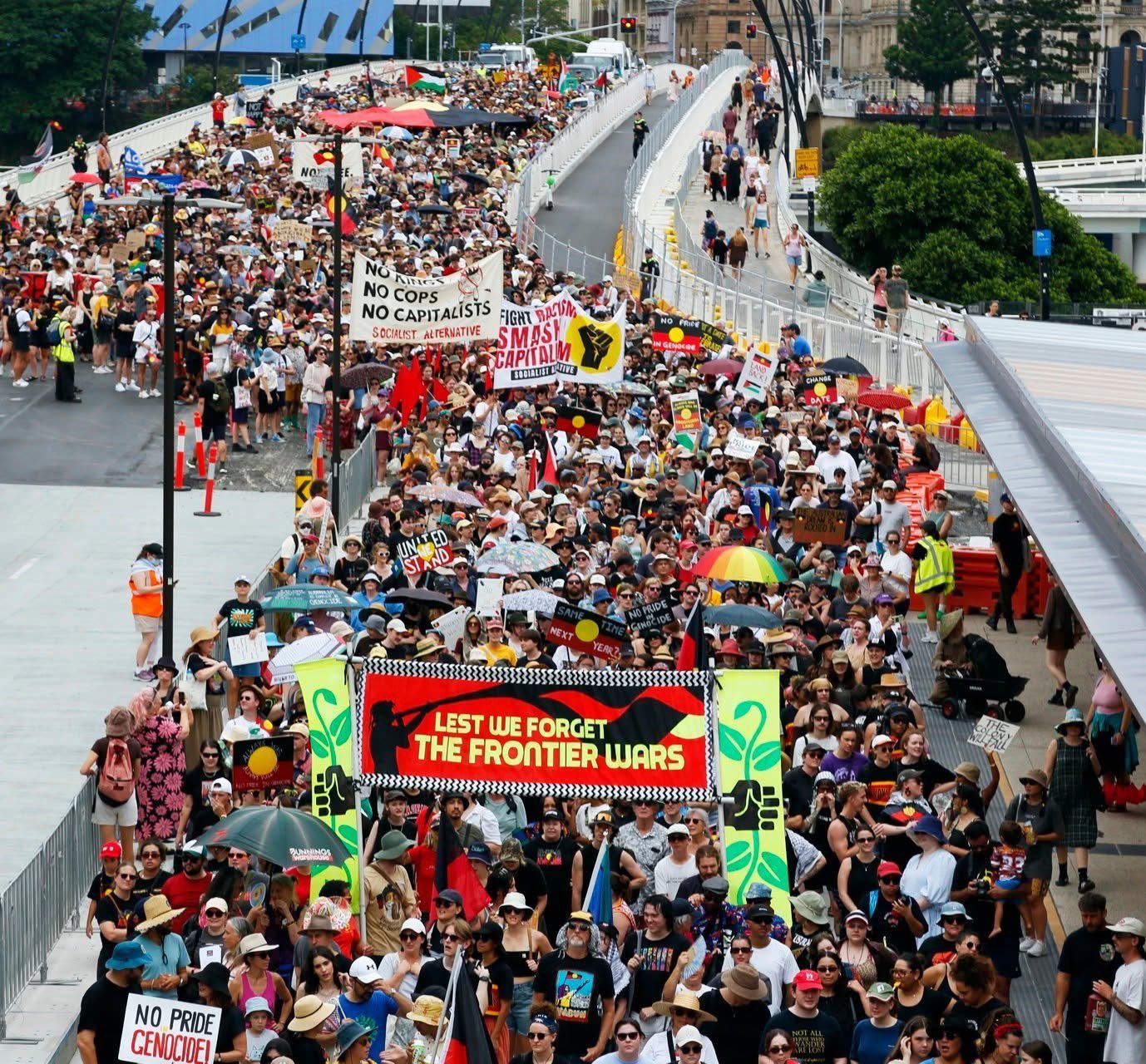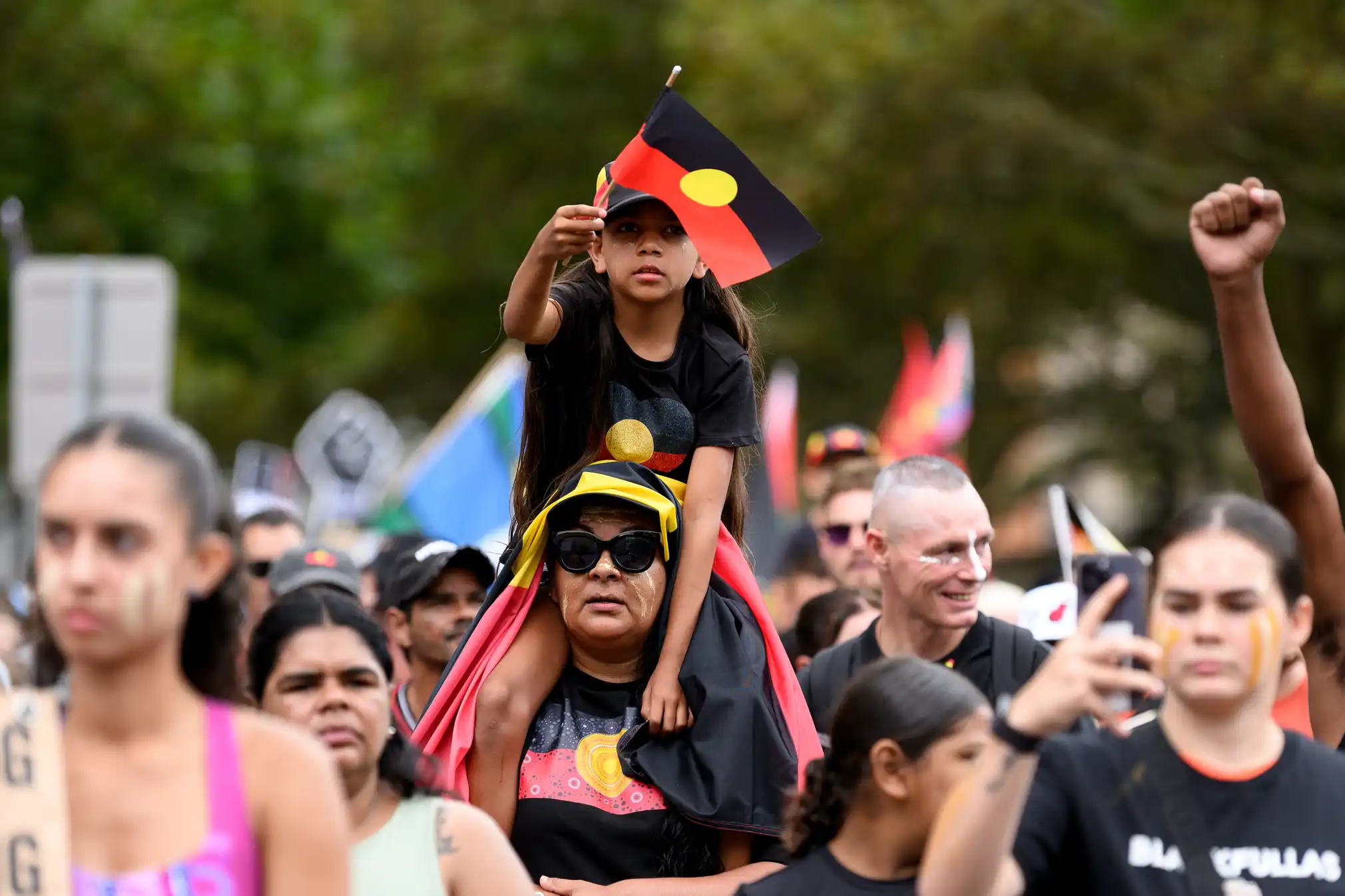Tens of thousands of Australians gathered at Invasion Day rallies across the country on January 26 to protest the national celebration of Australia Day.
The date, which marks the landing of the First Fleet at Sydney Cove in 1788, has become increasingly contentious. Many Indigenous and non-Indigenous Australians refer to it as Invasion Day or Survival Day, highlighting the ongoing legacy of colonisation and its impacts on First Nations peoples.
While Australia Day was officially declared a national public holiday in 1994, protests against the date have been ongoing for decades. The first recorded protest took place in 1938, when a group of Indigenous activists and supporters gathered in Sydney to mark what they called a “Day of Mourning.”

Since then, resistance to the celebration has grown, with many Australians questioning the appropriateness of the date in light of the historical trauma experienced by Indigenous communities.
In Melbourne alone, an estimated 30,000 people took to the streets, flooding the central business district with chants of “Always was, always will be Aboriginal land.”
Similar demonstrations took place in Sydney, Brisbane, Adelaide, and Perth, where protesters called for the abolition or change of the date, highlighting the continuing pain and trauma felt by First Nations peoples.
Greens leader Adam Bandt, a longstanding supporter of the movement to change the date, reaffirmed his stance on social media, writing: “For many, January 26 is a Day of Mourning. On this day, we recommit to truth-telling and justice for First Nations peoples, many of whom are hurting today. This always was and always will be Aboriginal land. No one can change that.”
For many, January 26 is a Day of Mourning.
On this day, we recommit to truth-telling and justice for First Nations peoples, many of whom are hurting today.
This always was and always will be Aboriginal land.
No one can change that.
— Adam Bandt (@AdamBandt) January 25, 2025
The movement to reconsider the significance of Australia Day has gained significant momentum in recent years. In 2023, research indicated a slight decline in public support for celebrating the day on January 26 compared to 2021, with younger Australians and those in urban areas more likely to favour a change.
This shift in sentiment has prompted several local governments to rethink their approach to the national holiday.
Last year, it was revealed that more than 80 local councils across the country moved their annual citizenship ceremonies away from January 26, responding to concerns raised by Indigenous communities and a broader shift in public sentiment.

The Department of Home Affairs and Shadow Immigration Minister Dan Tehan confirmed that 81 councils opted to conduct their ceremonies on alternative dates.
In 2022, the federal government amended legislation to provide councils with greater flexibility, allowing them to hold citizenship ceremonies within a three-day window before or after Australia Day.
This change was seen as a compromise to acknowledge growing concerns about the date while preserving the integrity of the citizenship process.
While calls to abolish or change the date of Australia Day continue to grow, resistance remains from those who view the day as an opportunity to celebrate national pride and unity.
However, many activists argue that true unity cannot be achieved without recognising the historical and ongoing injustices faced by Indigenous Australians.
As the debate intensifies, the Invasion Day rallies serve as a powerful reminder of the unresolved tensions surrounding Australia’s national identity and the urgent need for meaningful reconciliation.

